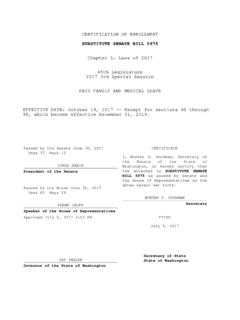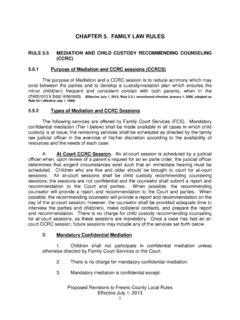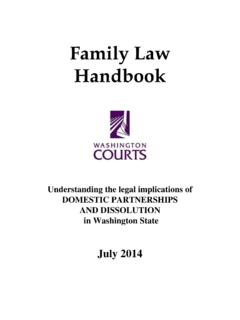Transcription of CHAPTER 5 - FAMILY LAW - California
1 Superior Court of California , County of Sacramento 51 CHAPTER 5 - FAMILY LAW Title of Rules. These rules shall be known as the FAMILY Law Local Rules for the Superior Court of California , County of Sacramento. (Adopted 1/1/2013) Construction of Provision Drawn From the FAMILY Code, California Rules of Court, Code of Civil Procedure, Evidence Code, or Other Uniform Act. A provision of these rules, insofar as it is the same in substance as a provision of the FAMILY Code, California Rules of Court, Code of Civil Procedure, Evidence Code, or other uniform act shall be construed to effectuate the general purpose of said codes or uniform act. (Adopted 1/1/2013) Effect of Headings. Section headings herein do not in any manner affect the scope, meaning, or intent of these rules.
2 (Adopted 1/1/2013) Construction of Rules. Unless the provision or context otherwise requires, the general provisions and rules of statutory construction apply to these rules. (Adopted 1/1/2013) Reference to Statute Includes Amendments and Additions. Whenever a reference is made to statutory law or Rules of Court, the reference applies to all amendments and additions thereto regardless of when made. (Adopted 1/1/2013) Construction of Tenses. The present tense includes the past and future tenses, and the future, the present. (Adopted 1/1/2013) Meaning of Shall, May, Shall Not, and May Not. "Shall" is mandatory and "may" is permissive. "Shall not" and "may not" are prohibitory. (Adopted 1/1/2013) Severability of Provisions. If a provision or clause of these rules or its application to any person or circumstance is held invalid, the invalidity does not affect other provisions or applications of these rules which can be given effect without the invalid provision or application, and to this end the provisions of these rules are severable.
3 (Adopted 1/1/2013) Superior Court of California , County of Sacramento 52 Definitions and Use of Terms. As used in these rules, unless the context or subject matter otherwise requires, the following definitions apply: "Confidential Mediation" means child custody mediation that is confidential, or non-recommending mediation. "Court-connected Mediation" means "child custody recommending counseling" through the Office of FAMILY Court Services. "Evaluator" means a court appointed investigator as defined in FAMILY Code section 3110. "Law and Motion" means all hearings set by the filing of a Request for Order or Request for Domestic Violence Restraining Orders. "Long Cause Hearing" means a law and motion hearing that cannot be completed within the 15 minutes allowed for short cause hearings. "Mediation" means "child custody recommending counseling.
4 " "Mediator" means a "child custody recommending counselor." "Presiding Judge" means the Presiding Judge of the Superior Court of California , County of Sacramento. "Private Mediation" means child custody and visitation mediation conducted by a non-court connected mediator (child custody recommending counselor). "Self-represented party" means a party not represented by an attorney of record. "Short Cause Hearing" means a hearing on a law and motion calendar that shall be completed within 15 minutes. "Status Only Judgment" means a Judgment of Dissolution of Marriage or Legal Separation that affects the marital status only and that reserves jurisdiction over all remaining issues in the action, if any. "Supervising Judge" means the Supervising Judge of FAMILY Law. (Adopted 1/1/2013; revised 1/1/2020) Assignments in FAMILY Law Departments.
5 FAMILY Law cases shall be assigned to FAMILY law departments as the Supervising Judge determines. (Adopted 1/1/2013) Pending Hearing Date: Disclosure on Pleading. All pleadings filed for use at a pending hearing shall bear the date and time of the hearing, and department number in which the hearing is set, under the case number of the first page of the pleading or form. If a hearing is not set, the pleading or form shall bear the words "No Hearing." (Adopted 1/1/2013; revised 1/1/2016) (Deleted effective 1/1/2020) Signature of Self-Represented Party on Agreement or Stipulation - Notary Required. The signature of a defaulted self-represented party to an Agreement or Stipulation shall be subscribed by a duly authorized Notary Public. (Adopted 1/1/2013; revised 1/1/2016) Superior Court of California , County of Sacramento 53 Ex Parte Application.
6 (A) Ex parte applications are governed by California Rules of Court, rule (B) Applications for ex parte relief and oppositions thereto shall be filed directly in the assigned department based on the case assignment protocol located on the court s website at Ex parte applications are heard on Monday through Friday at 8:30 (C) If the party giving notice of the ex parte application fails to report to the department by 8:30 , the application shall be dropped. (Adopted 1/1/2013; revised 1/1/2014) Order Shortening Time - Request for Order. The court, on its own motion or on application for an order shortening time supported by a declaration showing good cause, may prescribe shorter times for the filing and service of papers than the times specified in Code of Civil Procedure section 1005.
7 (Adopted 1/1/2013) Law and Motion Pleadings - Filing - Assignment. Time Limitation. (A) Law and Motion pleadings shall be filed with the clerk of the court in room 100. Pleadings involving child custody and visitation disputes shall include a FAMILY Law Case Demographics Information Sheet for Child Custody/Visitation (local form ME-811). (B) All Law and Motion shall first be set for a short cause hearing. A short cause hearing shall have a maximum duration of 15 minutes, unless extended by leave of court. (C) Law and Motion that exceeds, or is likely to exceed, 15 minutes maximum duration may be set for long cause hearing. (Adopted 1/1/2013; revised 1/1/2020) Confidential Mediation. Mediation resulting from a Petition for Confidential Mediation shall be confidential and, except as otherwise authorized by law, there shall be no mediation report offered to the court.
8 (Adopted 1/1/2013) Recommending Mediation. (A) Except as provided in L o c a l R u l e s , rule , mediation of child custody and visitation disputes is non-confidential, and a written report including recommendations may be provided to the parties, counsel, and court pursuant to FAMILY Code section 3183 through the court s Public Case Access System located on the website at and shall be brought by the parties to any hearing involving custody or visitation issues. Said reports and recommendations may be offered for admission into evidence at hearing or trial, subject to procedural or evidentiary objection. (B) Parties participating in court-connected mediation and child custody recommending counseling through the Office of FAMILY Court Services shall comply with the rules located on the court s website at (C) Ex parte communication between parties, counsel, and court shall be governed by applicable statutes and California Rules of Court.
9 Superior Court of California , County of Sacramento 54 [Rule required by CRC (d)(1)(H)] (Adopted 1/1/2013; revised 1/1/2014; revised 1/1/2016; revised 1/1/2018; revised 1/1/2020) Private Mediation - Procedure - Mediator Standards - Requests to Change - General Problems. (A) "Private Mediation" is child custody and visitation mediation conducted by a non-court connected mediator (child custody recommending counselor). (B) A party may request that mediation of disputed custody and visitation issues be conducted by a private mediator not affiliated with the court, in lieu of mediation conducted by the Office of FAMILY Court Services. Written notice of a request for private mediation shall be made by filing a Petition for Private Child Custody Recommending Counseling (local form FL/E-LP-601), together with an Order of Private Child Custody Recommending Counseling (local form FL/E/LP-603) and Declaration of Private Child Custody Recommending Counselor Regarding Qualifications (local form FL/E-FR-411) for each mediator proposed in the Petition.
10 Absent agreement otherwise, the party filing the Petition shall advance the cost of private mediation and the court shall reserve jurisdiction to allocate the costs by further order. (C) Absent a Stipulation, endorsed copies of the Petition (local form FL/E-LP-601), Declarations (local form FL/E-FR-411), a blank Response to Petition for Private Child Custody Recommending Counseling (local form FL/E/LP-602), and a copy of the local Instructions for Petition for Private Child Custody Recommending Counseling shall be served on the party and/or the attorney of record within five business days of filing with the court. Within seven days of service of local form FL/E-LP-601, any party may object to the relief requested in local form FL/E-LP-601 by filing and serving local form FL/E/LP-602 on the party and/or the attorney of record.


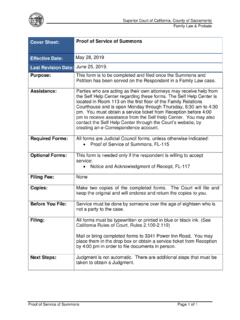
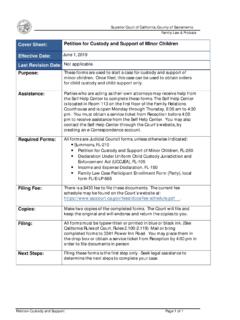



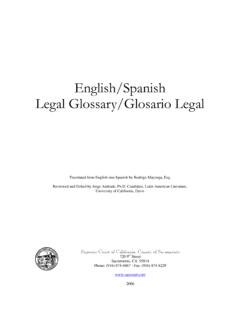


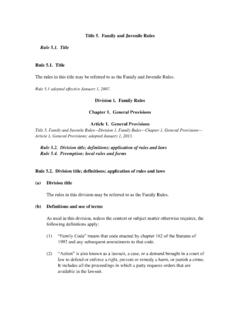
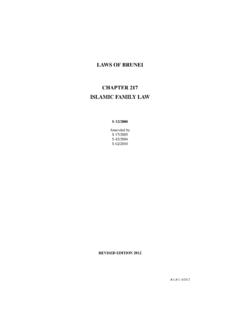
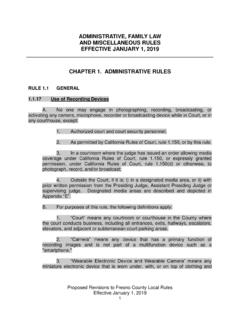
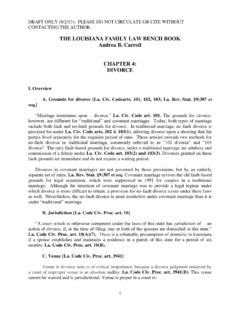
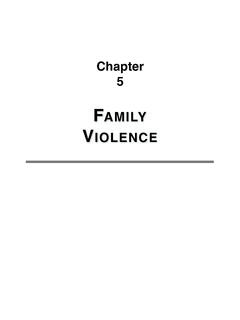
![CHAPTER 5 - [OFFENSES] - indianlaw.mt.gov](/cache/preview/a/f/b/0/c/0/0/b/thumb-afb0c00bde8407c6a9ae0a4fc2364016.jpg)
